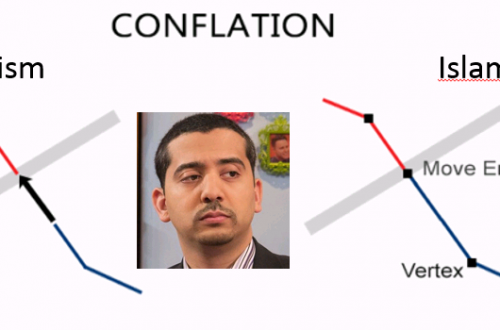Writing in The New Yorker, Jeffrey Goldberg looks at the divisions between Democratic senators who favor a “muscular” approach to international relations and those more comfortable with the party’s traditional post-Vietnam course of seeking to avoid conflict at almost any cost.
The unelected leader of the “national security Democrats” is Senator Joseph Biden of Delaware, whom I admire for his thoughtfulness and plain-spokenness, and about whom I’ve blogged before.
Biden was one of John Kerry’s foreign-policy advisers in last year’s Presidential campaign, although he now indicates Kerry foolishly ignored some of his advice.
According to Goldberg:
Most national-security Democrats believe that the Party’s problems on the issue go deeper than marketing. They agree that the Party should be more open to the idea of military action, and even preëmption; and although they did not agree about the timing of the Iraq war and the manner in which Bush launched it, they believe that the stated rationale—Saddam’s brutality and his flouting of United Nations resolutions—was ideologically and morally sound. They say that the absence of weapons of mass destruction was more a failure of intelligence than a matter of outright deception by the Administration; and although they do not share the neoconservatives’ enthusiastic belief in the transformative power of military force, they accept the possibility that the invasion of Iraq might lead to the establishment of democratic institutions there.
…..
Biden says he is reminded of the Party’s difficult relationship with Ronald Reagan. “Everybody knew ‘Reagan is dangerous,’ remember? He talked about freedom, so what do we do? We say it’s a bad speech, dangerous speech.” Biden was referring to a 1982 speech delivered by Reagan to the British Parliament, in which he spoke of the power of democracy. Today, the Democrats are “making the same mistakes again,” Biden said.
Biden was referring to Democrats like Senators Barbara Boxer of California and Ted Kennedy of Massachusetts. Goldberg interviewed Boxer, who said she took “great offense” at President Bush’s inaugural speech– precisely the wrong reaction, in my opinion.
“He said that our freedom and our democracy depend on the freedom of other countries,” she said. “I think that America is so strong, it has such a strong Constitution and a great history of freedom, that while we must, of course, be deeply concerned about what happens in other countries, what happens to this country is up to us. His words ring hollow because of the mess in Iraq, and all over the world. Every day, another terrible thing is happening.”
…..
Ted Kennedy has called on President Bush to set an exit date for Iraq. He argued, in a speech delivered the week before the Iraqi election, that the insurgency is made stronger by the presence of American troops on Iraqi soil, and he compared the Iraq war to the war in Vietnam.
When I spoke to Kennedy last month, he said that the election did not persuade him that the war was justified. He believes that it was fought under false pretenses, and is unconvinced that democracy can be brought by force to a place like Iraq…
Goldberg insists on placing Boxer and Kennedy “to the left of the Democratic center on foreign policy,” which is frustrating to people like me, who don’t see anything particularly “left” about Boxer’s and Kennedy’s positions compared to Biden’s. I wonder if that perception will ever change.
Goldberg reports that Biden is “an interested, but undeclared, candidate” for the Democratic presidential nomination in 2008. I’d love to see him in the race, saying things nobody else dares to say and making all the right people squirm. But in these days of strict message discipline, I fear Biden’s bluntness would get him in trouble fairly quickly.


